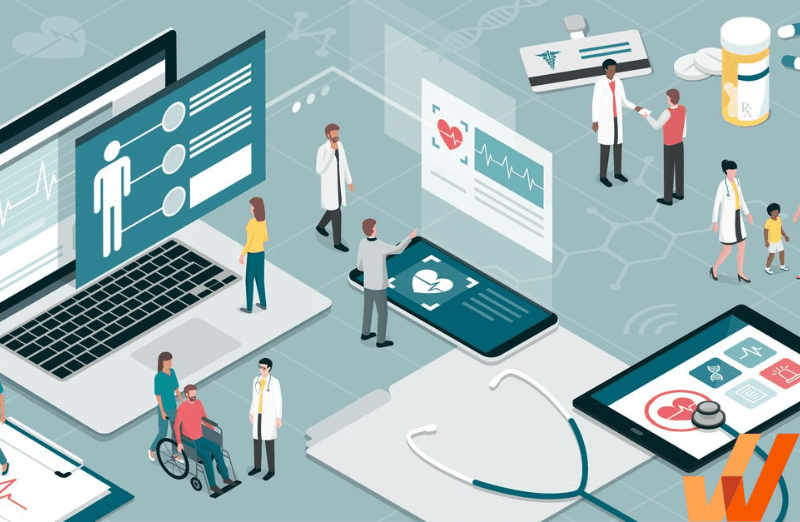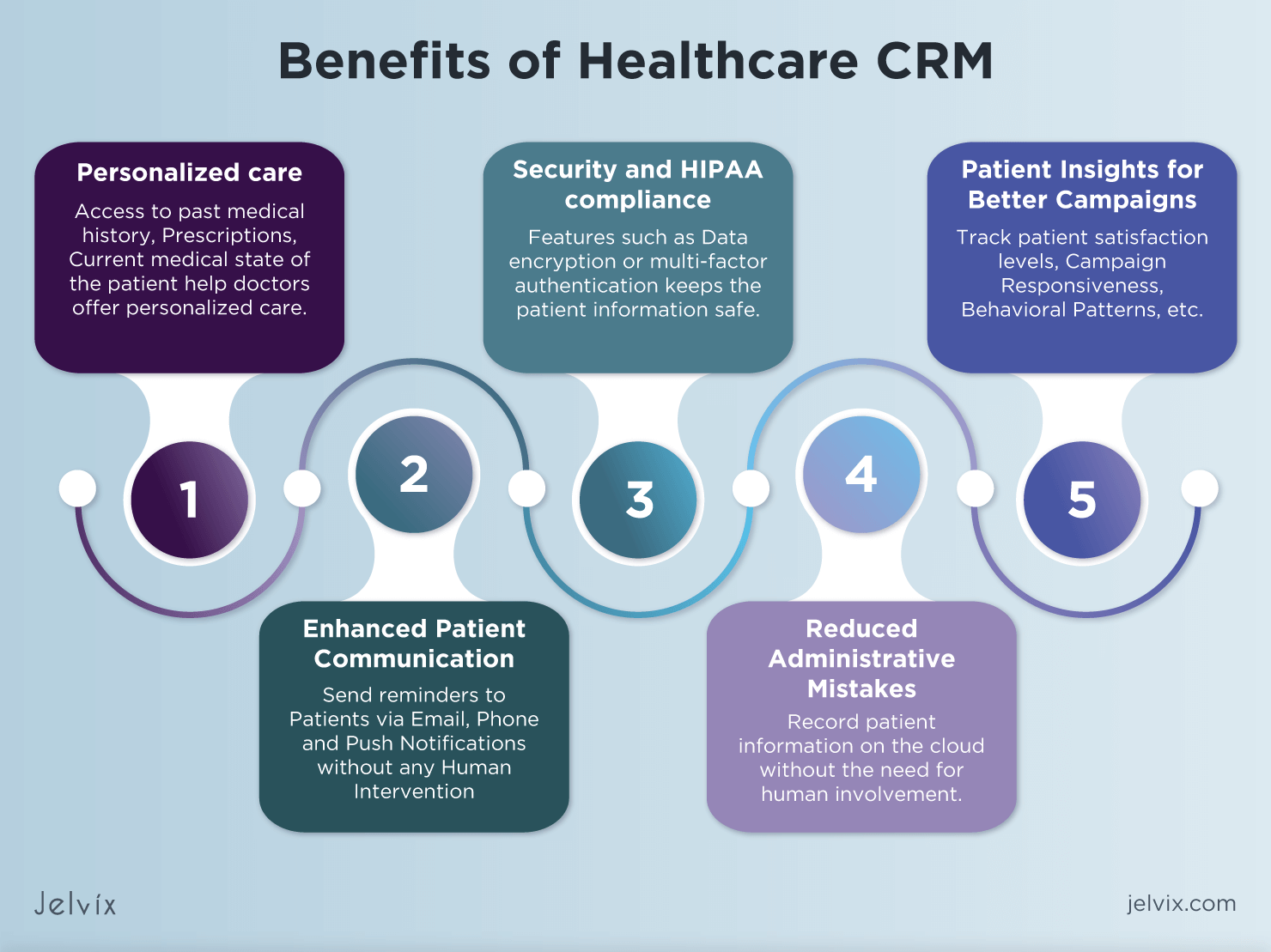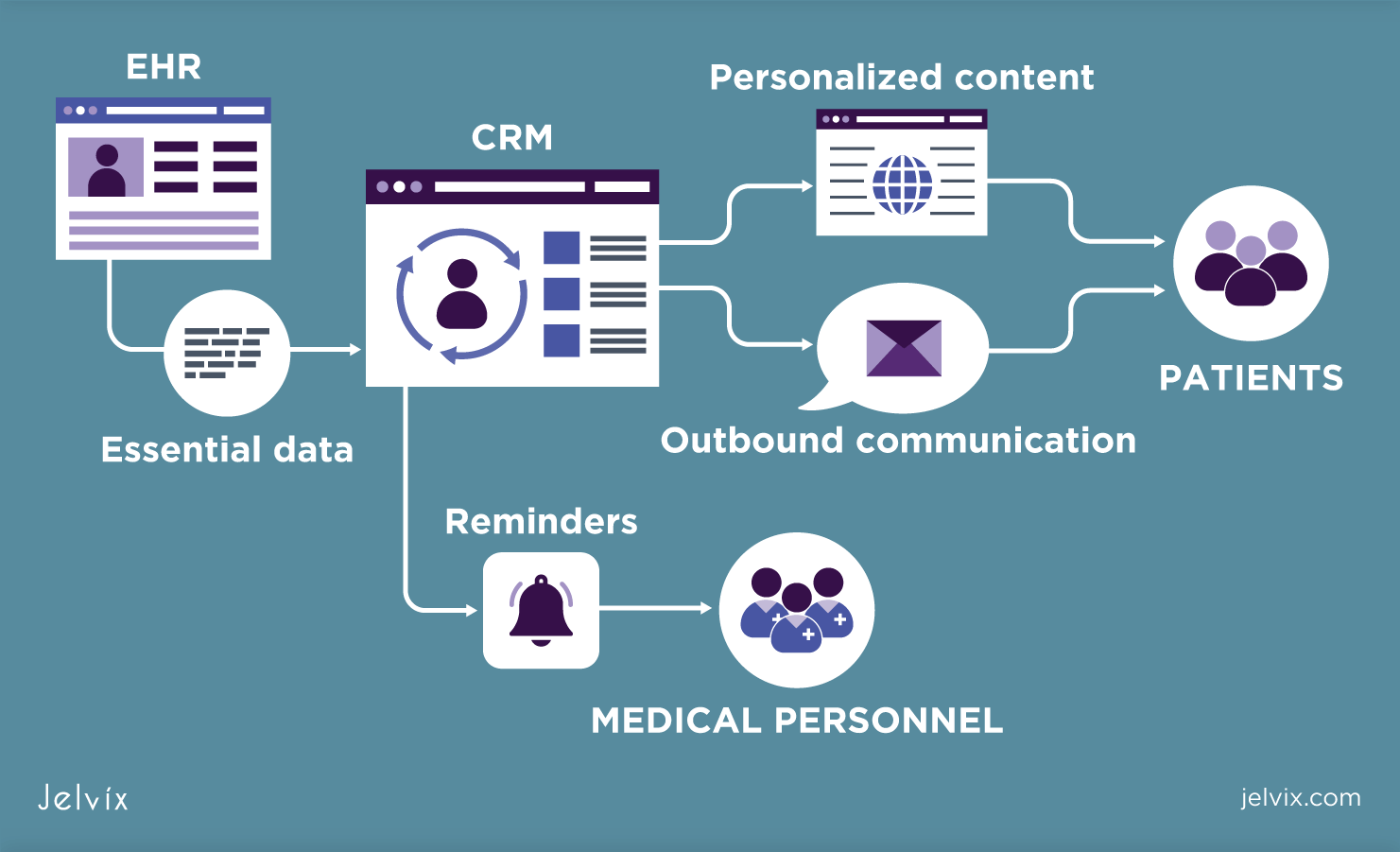Health care CRM (customer relationship management) is a game-changer in the healthcare industry, transforming patient interactions, streamlining operations, and driving business growth. By harnessing the power of CRM, healthcare providers can cultivate stronger relationships with patients, enhance communication, and deliver exceptional care.
From improved patient satisfaction to increased revenue and enhanced operational efficiency, the benefits of health care CRM are undeniable. Let’s delve deeper into this transformative technology and explore its potential to revolutionize the healthcare landscape.
Introduction

Health care customer relationship management (CRM) is a strategic approach to managing interactions with patients and customers in the healthcare industry. It involves leveraging technology to gather, organize, and analyze data about patient interactions, preferences, and medical history.
CRM in healthcare is crucial for improving patient care, enhancing operational efficiency, and driving revenue growth. By understanding the needs and preferences of patients, healthcare providers can tailor their services, improve communication, and provide personalized care plans.
Benefits of Health Care CRM
- Improved Patient Care:CRM systems provide a comprehensive view of patient data, enabling healthcare providers to make informed decisions about treatment plans, medication management, and follow-up care.
- Enhanced Operational Efficiency:CRM streamlines administrative tasks, such as appointment scheduling, insurance verification, and billing, reducing the burden on healthcare staff and improving overall efficiency.
- Increased Patient Satisfaction:By providing personalized communication and support, CRM systems foster stronger patient relationships, leading to increased satisfaction and loyalty.
- Revenue Growth:CRM enables healthcare providers to identify and target potential patients, nurture existing relationships, and upsell additional services, driving revenue growth.
Benefits of Health Care CRM

Health care CRM systems offer numerous advantages to healthcare organizations, enabling them to streamline operations, enhance patient care, and improve overall efficiency. These benefits include:
Improved Patient Satisfaction
By providing a comprehensive view of patient data, Health Care CRM enables healthcare providers to better understand their patients’ needs and preferences. This allows them to tailor treatment plans and communication strategies accordingly, leading to improved patient satisfaction and loyalty.
For instance, a study by Salesforce found that healthcare organizations using CRM systems experienced a 20% increase in patient satisfaction scores.
Increased Revenue
Health Care CRM systems can help healthcare organizations increase revenue by identifying and targeting high-value patients, managing referrals, and automating marketing campaigns. By leveraging data analytics, healthcare providers can gain insights into patient behavior and preferences, allowing them to develop targeted marketing campaigns that are more likely to generate leads and conversions.
For example, a study by Accenture found that healthcare organizations using CRM systems experienced a 15% increase in revenue.
Enhanced Communication
Health Care CRM systems provide a centralized platform for managing patient communication, ensuring that all interactions are tracked and recorded. This allows healthcare providers to communicate with patients in a more efficient and personalized manner, improving patient engagement and satisfaction.
For instance, a study by Microsoft found that healthcare organizations using CRM systems experienced a 25% increase in patient engagement scores.
Features of Health Care CRM
Health care CRMs offer a comprehensive suite of features designed to streamline operations and enhance patient care. These features include patient management, appointment scheduling, and marketing automation, among others.
Patient management capabilities allow health care providers to centralize and manage patient information, including medical history, treatment plans, and insurance details. This centralized data repository provides a holistic view of each patient’s health journey, enabling providers to make informed decisions and deliver personalized care.
Appointment Scheduling, Health care crm
Integrated appointment scheduling features automate the process of scheduling and managing patient appointments. Patients can easily book appointments online or through a mobile app, reducing the administrative burden on staff and improving patient convenience. Automated appointment reminders and confirmations help reduce no-shows and improve patient engagement.
Marketing Automation
Marketing automation tools within health care CRMs enable providers to nurture relationships with patients and prospects. Targeted email campaigns, personalized messaging, and automated follow-ups can be used to educate patients about health conditions, promote preventive care, and drive loyalty.
Challenges of Health Care CRM
Implementing a health care CRM system presents unique challenges due to the complex and sensitive nature of the industry. These challenges include:
- Data privacy and security concerns: Health care data is highly sensitive and must be protected in accordance with strict regulations.
- Integration with legacy systems: Health care organizations often have multiple legacy systems that need to be integrated with the CRM system.
- Resistance to change: Health care professionals may be resistant to adopting new technologies, especially if they disrupt their established workflows.
- Lack of resources: Health care organizations may have limited resources to invest in a CRM system and its implementation.
- Scalability: Health care organizations need a CRM system that can scale to meet the growing demands of their patient population.
Overcoming Challenges
Overcoming these challenges requires a well-planned and strategic approach. Here are some strategies:
- Address data privacy and security concerns by implementing robust security measures and adhering to industry regulations.
- Integrate with legacy systems using a phased approach and involving stakeholders throughout the process.
- Gain buy-in from health care professionals by involving them in the planning and implementation process, and providing training and support.
- Secure funding and resources by demonstrating the potential return on investment of the CRM system.
- Choose a scalable CRM system that can grow with the organization’s needs.
Trends in Health Care CRM

The health care industry is constantly evolving, and so is the technology that supports it. Health care CRM systems are becoming increasingly sophisticated, and new trends are emerging all the time. Two of the most important trends are the use of artificial intelligence (AI) and patient portals.
AI is being used to automate a variety of tasks in health care, including patient scheduling, claims processing, and fraud detection. This can free up health care providers to spend more time with patients, and it can also help to improve the efficiency and accuracy of health care operations.
Patient portals are another important trend in health care CRM. These portals allow patients to access their health information online, schedule appointments, and communicate with their providers. This can make it easier for patients to manage their health care, and it can also help to improve patient satisfaction.
AI in Health Care CRM
- AI can be used to automate a variety of tasks in health care, including:
- Patient scheduling
- Claims processing
- Fraud detection
- Customer service
- AI can help to improve the efficiency and accuracy of health care operations.
- AI can also be used to personalize the patient experience.
Patient Portals
- Patient portals allow patients to access their health information online.
- Patients can use patient portals to:
- Schedule appointments
- Communicate with their providers
- View their medical records
- Pay their bills
- Patient portals can make it easier for patients to manage their health care.
- Patient portals can also help to improve patient satisfaction.
Case Studies
Real-world case studies provide valuable insights into the practical implementation of health care CRM solutions. They showcase the benefits and challenges faced by different healthcare organizations, helping to inform decision-making and provide a roadmap for successful CRM initiatives.
One notable case study is that of Cleveland Clinic, a renowned healthcare provider. By implementing a CRM system, Cleveland Clinic was able to enhance patient engagement, streamline communication, and improve care coordination. The system provided a centralized platform for managing patient data, enabling healthcare providers to access patient information in real-time, track patient interactions, and provide personalized care plans.
Another successful implementation is that of Kaiser Permanente, one of the largest integrated healthcare systems in the United States. Kaiser Permanente utilized a CRM solution to enhance patient experience and optimize operations. The system enabled the organization to provide personalized care plans, automate appointment scheduling, and improve communication with patients.
As a result, Kaiser Permanente experienced increased patient satisfaction, improved operational efficiency, and reduced costs.
These case studies demonstrate the tangible benefits of health care CRM implementations. By leveraging technology to enhance patient engagement, streamline communication, and improve care coordination, healthcare organizations can improve patient outcomes, increase efficiency, and drive innovation.
Conclusion
In conclusion, health care CRM has emerged as an indispensable tool for healthcare organizations to enhance patient engagement, streamline operations, and improve overall efficiency. Its capabilities extend beyond mere data management, encompassing a comprehensive suite of features that cater specifically to the unique needs of the healthcare industry.
The adoption of health care CRM has revolutionized the way healthcare providers interact with patients, empowering them to deliver personalized care, improve patient outcomes, and optimize their resources. As the healthcare landscape continues to evolve, health care CRM will undoubtedly play an increasingly pivotal role in shaping the future of healthcare delivery.
Final Summary

In conclusion, health care CRM is an indispensable tool for healthcare providers seeking to optimize patient care, streamline operations, and achieve business success. By embracing the transformative power of CRM, healthcare organizations can create a seamless and personalized patient experience, foster stronger relationships, and drive growth in the ever-evolving healthcare landscape.
Common Queries
What are the key features of a health care CRM system?
Key features include patient management, appointment scheduling, marketing automation, electronic health records integration, and reporting and analytics.
How can health care CRM improve patient satisfaction?
CRM enables personalized communication, proactive care management, and timely appointment reminders, enhancing patient experience and satisfaction.
What are the challenges associated with implementing a health care CRM system?
Challenges include data security and privacy concerns, resistance to change, and the need for proper training and support.
